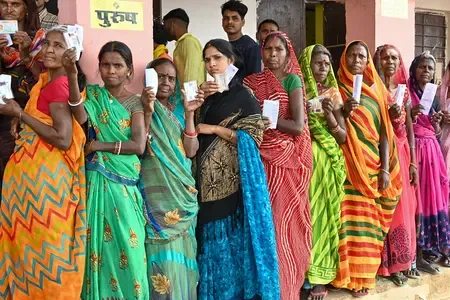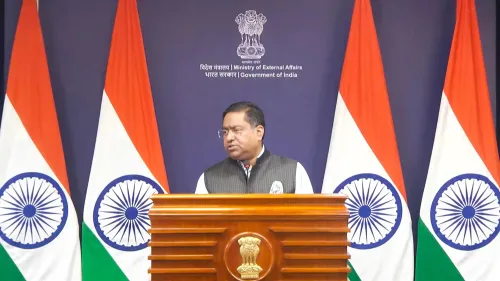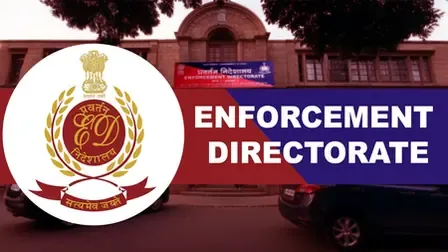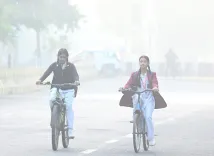Did Sheikh Hasina Just Call the Verdict from a 'Rigged Tribunal' Biased and Politically Motivated?
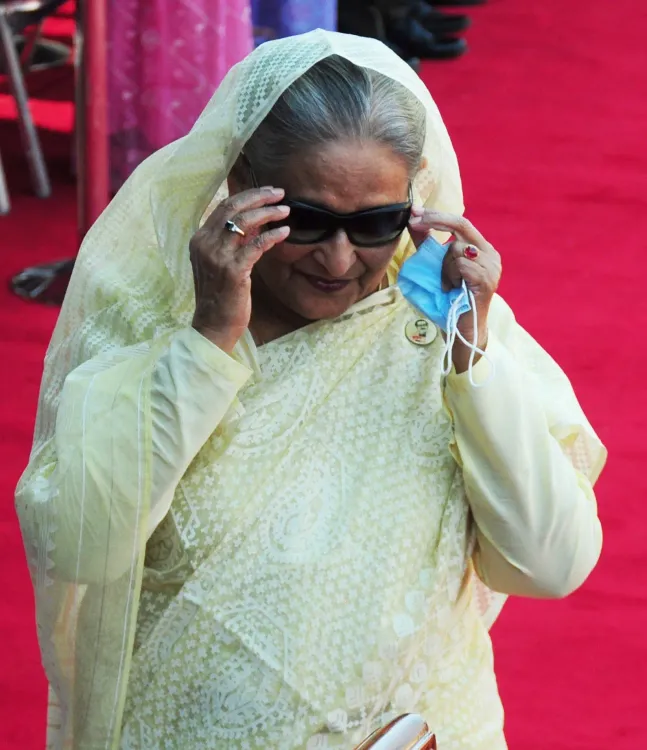
Synopsis
Key Takeaways
- Sheikh Hasina condemns the verdict as politically motivated.
- Claims the tribunal lacks legitimacy under an unelected government.
- Highlights social and political issues in Bangladesh.
- Challenges the interim government to bring charges to the ICC.
- Calls for justice and accountability.
Dhaka, Nov 17 (NationPress) Former Prime Minister of Bangladesh, Sheikh Hasina, accused the verdict delivered against her by a “rigged tribunal”, established and overseen by the unelected interim government led by Muhammad Yunus, of lacking a democratic foundation. She described the ruling as “biased” and “politically motivated”.
These comments followed the announcement from Bangladesh's International Crimes Tribunal (ICT), which sentenced the former Prime Minister to death after finding her guilty of crimes against humanity linked to the protests in July of last year.
“Their grotesque demand for a death penalty exposes the extreme and violent intentions of certain officials within the interim government, aiming to eliminate Bangladesh's last elected Prime Minister and obliterate the Awami League as a political entity. The millions of Bangladeshis suffering under the disruptive, violent, and regressive rule of Dr. Muhammad Yunus will not be deceived by this scheme to rob them of their democratic rights. They recognize that the trials conducted by this so-called International Crimes Tribunal (ICT) were never meant to deliver justice or to shed light on the events of July and August 2025. Instead, these trials served to vilify the Awami League and divert global attention from Dr. Yunus and his administration's failures,” read a statement from Hasina following the contentious ICT ruling.
Criticizing the Yunus-led interim government, she added, “Under his leadership, public services have deteriorated. Law enforcement has withdrawn from the crime-ridden areas, and judicial integrity has been compromised, with assaults on Awami League supporters going unpunished. Religious minorities, including Hindus, face violence, women's rights are curtailed, and Islamic extremists within the government, including members of Hizb-ut-Tahrir, undermine Bangladesh’s secular legacy. Journalists are imprisoned and threatened, economic progress has stagnated, and Yunus has postponed elections while prohibiting the Awami League, the nation's oldest party, from participating in them.
The former Prime Minister refuted the claims against her in the ICT. “I grieve for all the lives lost during the events of July and August of last year, on both sides. However, neither I nor any other political figures issued orders for the killing of protestors,” she emphasized.
Hasina expressed that she is unafraid to confront her accusers in a legitimate tribunal where evidence can be thoroughly examined, reiterating her challenge to the interim government to take these allegations to the International Criminal Court (ICC) in The Hague.
“The interim government will evade this challenge, knowing that the ICC would exonerate me. They are also apprehensive that the ICC would investigate its own history of human rights violations during their tenure,” she claimed.


